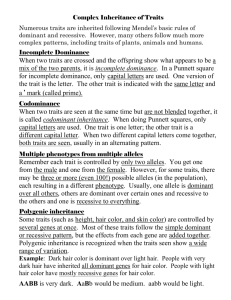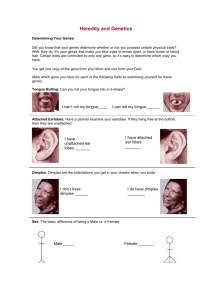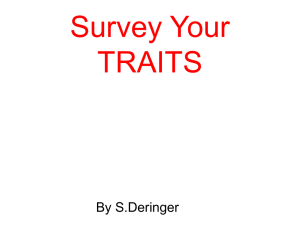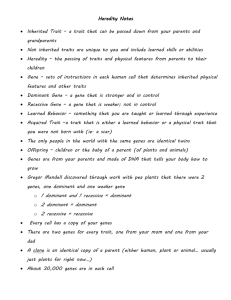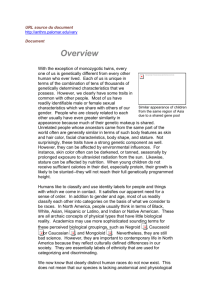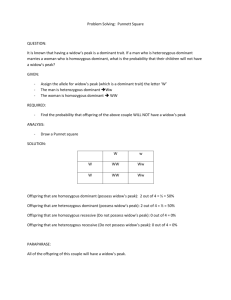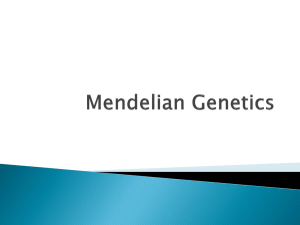How common are certain inherited traits
advertisement
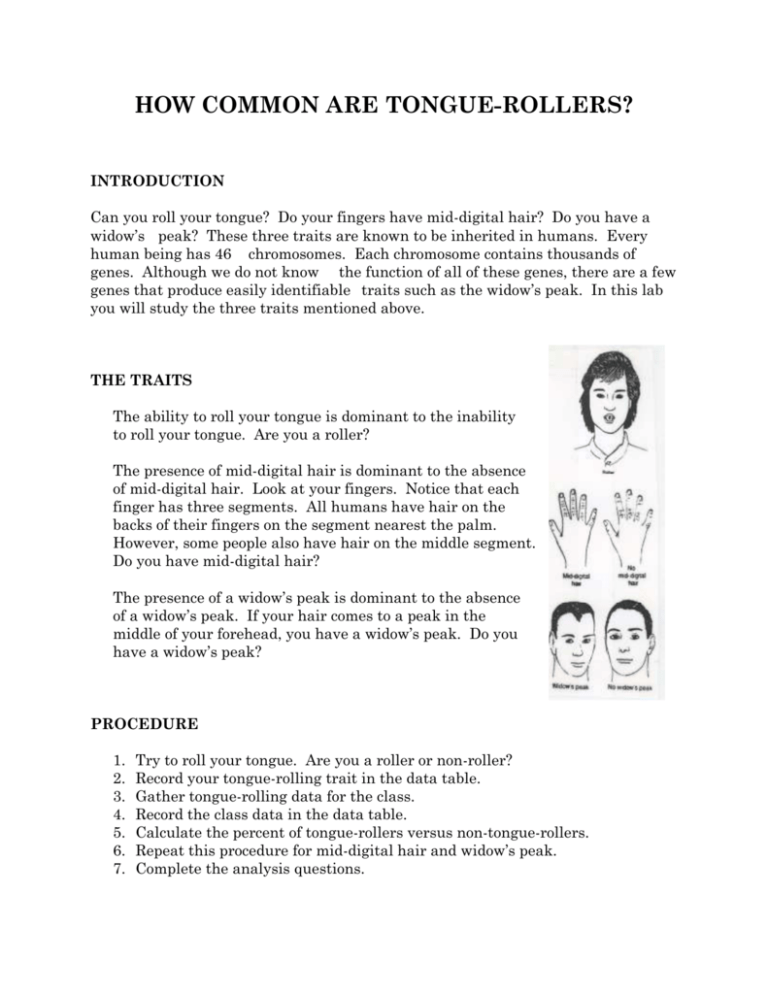
HOW COMMON ARE TONGUE-ROLLERS? INTRODUCTION Can you roll your tongue? Do your fingers have mid-digital hair? Do you have a widow’s peak? These three traits are known to be inherited in humans. Every human being has 46 chromosomes. Each chromosome contains thousands of genes. Although we do not know the function of all of these genes, there are a few genes that produce easily identifiable traits such as the widow’s peak. In this lab you will study the three traits mentioned above. THE TRAITS The ability to roll your tongue is dominant to the inability to roll your tongue. Are you a roller? The presence of mid-digital hair is dominant to the absence of mid-digital hair. Look at your fingers. Notice that each finger has three segments. All humans have hair on the backs of their fingers on the segment nearest the palm. However, some people also have hair on the middle segment. Do you have mid-digital hair? The presence of a widow’s peak is dominant to the absence of a widow’s peak. If your hair comes to a peak in the middle of your forehead, you have a widow’s peak. Do you have a widow’s peak? PROCEDURE 1. 2. 3. 4. 5. 6. 7. Try to roll your tongue. Are you a roller or non-roller? Record your tongue-rolling trait in the data table. Gather tongue-rolling data for the class. Record the class data in the data table. Calculate the percent of tongue-rollers versus non-tongue-rollers. Repeat this procedure for mid-digital hair and widow’s peak. Complete the analysis questions. DATA dominant trait tongueroller mid-digital hair widow’s peak recessive trait non-tongue roller lack middigital hair lack widow’s peak my trait dominant number recessive number dominant percent recessive percent ANALYSIS 1. For which traits do the majority of students display the dominant trait? ________________________________________________________________________ 2. For which traits do the majority of students display the recessive trait? ________________________________________________________________________ 3. Nationally, about 70% of the population are tongue-rollers and about 30% are non-tongue-rollers. a. How does the class data compare to the national figures? __________________________________________________________________ b. Discuss reasons for possible differences between the class and the national data. __________________________________________________________________ 4. Do dominant traits always occur in a majority of people? _________________ Explain. _______________________________________________________________ ________________________________________________________________________

